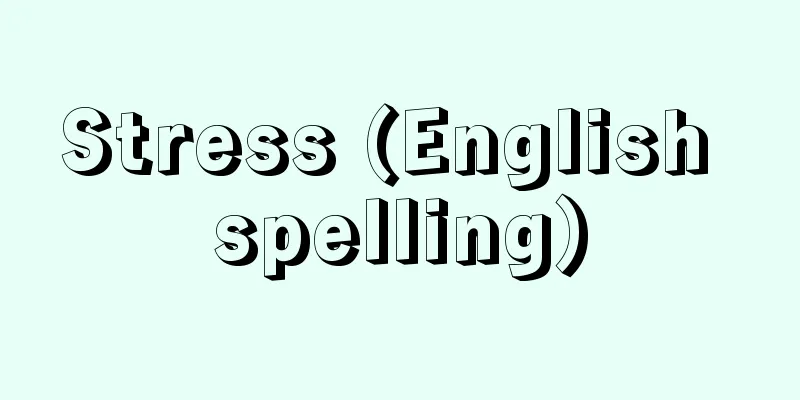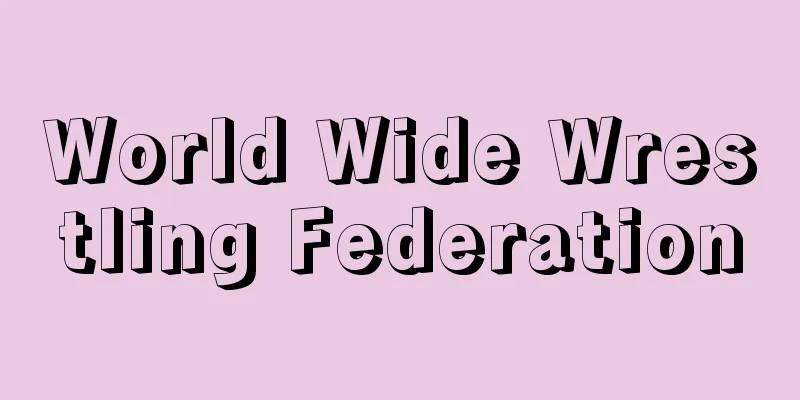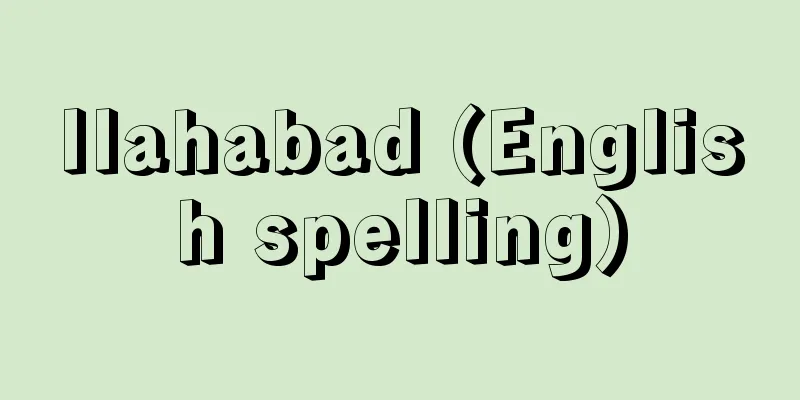Stress (English spelling)

|
Specific ways to improve your ability to cope with stress include: 1. Gain correct knowledge about stress. ② Maintain physical and mental health through healthy sleep, exercise, and eating habits. ③Accurately understand your own stress state. ④ You will be able to relax. ⑤ View things realistically and flexibly. ⑥ Express your feelings and thoughts well. ⑦ Use your time effectively and have some free time. 8. Try to change your mood by taking up a hobby or traveling. Some examples include: The effects of stress on individuals can be mitigated by support from spouses, family, friends, acquaintances, workplaces, local communities, etc. For this reason, it is important for individuals to be able to obtain the understanding and cooperation of those around them, but it is also important to create a social environment that supports individuals upon request. How to deal with stressAccording to a survey by the Ministry of Health, Labor and Welfare, when asked how people deal with stress, 39% said they "vent their stress by talking to others," followed by "relaxing" and "watching TV or listening to the radio." When broken down by gender, men most often said they "devote themselves to hobbies or sports" at 35%, followed by "relaxing," "watching TV or listening to the radio," and "drinking alcoholic beverages." Meanwhile, women overwhelmingly said they "vent their stress by talking to others," at over 50%. Stress counsellorWhen stressed, the most common people people turn to for advice are "family" and "friends/acquaintances," for both men and women. By gender, 49% of men say "family" and 38% say "friends/acquaintances," while for women, the figures are over 55% for both. Looking at this by age group, for men aged 12-34, "friends/acquaintances" was the most common answer, while for those aged 35 and over, "family" was the most common answer. On the other hand, for women, the same tendency can be seen, but for those aged 45 and over, "family" was the most common answer. The reality and effects of various rest methods① Outdoor Rest Methods ・Forest bathing When you walk through the hustle and bustle of a city, you may feel strangely irritated, and even the smallest things may make you overreact and angry. On the other hand, in places with clean air, such as forests and plateaus, the air is clear, and taking a leisurely stroll through such places can refresh your frayed mind and tired body. ・Hot spring bath Hot springs contain various substances such as sodium, calcium, and chloride, which penetrate the skin and activate cells. Stretching your limbs in a spacious hot spring bath also helps to open up your mind. ② Rest methods you can do at home ・Hot bath effect Even when you're exhausted, taking a bath can revive your body. There are medical reasons for this, one of which is that bathing improves blood circulation. Improving blood circulation has the effect of restoring flexibility to stiff muscles. In addition, the fatigue substance that accumulates in muscles due to exercise is called lactic acid, but bathing improves blood circulation and reduces this lactic acid. For this reason, it is believed that taking a bath can help recover from muscle fatigue more quickly. Music Therapy The effects of music include psychological effects such as changing mood and relieving tension through the melody, rhythm, and harmony of music, as well as physical effects such as influencing blood pressure, breathing, and gastrointestinal function. These effects are utilized in the treatment of stress. There are two types of music therapy: music therapy, in which a specialist uses music to provide treatment, and music health therapy, in which anyone can freely use music that they like. Music therapy is a specialized field in which a specialist uses music to treat patients (listening, singing, playing, etc.). On the other hand, music health therapy focuses on enjoying listening to music that you find comfortable. Therefore, we recommend that you create your own music tapes for stress relief and listen to them to relieve stress. Ideally, you should create tapes for different purposes, such as for falling asleep, waking up in the morning, relieving irritation, relieving anxiety, improving work efficiency, etc. You can also use CDs made for such purposes, or cable radio stations that allow individuals to easily listen to a wide variety of music. ・Aromatherapy Aromatherapy is a natural therapy that enjoys the benefits of the scent produced by natural essential oils extracted from plants. When you inhale a scent, the stimulation is transmitted from the limbic system to the pituitary gland. This is the center of the autonomic nervous system and hormone secretion systems, so the message of the scent is transmitted to every corner of the body, resulting in the activation of the body and mind, or the suppression of excitement. Pets Just looking at pets makes us feel warm and fuzzy. Mammals such as dogs and cats especially love physical contact, so they look very satisfied when you stroke or pick them up. This is not only a pleasant physical contact for humans, but it also soothes the heart. ·sleep Sleep is the most effective way to relieve fatigue from the day. The amount of sleep varies from person to person, and there is no set number of hours you must sleep. If you feel fatigued, taking a 20-30 minute nap before 3pm is also effective. 3) Other ways to relieve stress Laughter Laughter through manzai, rakugo, comedy, etc. can relieve worries and stress. It has been reported that enjoying manzai and comedy can increase the body's immune function, which indicates its resistance, by about 30%. This clearly means that laughter increases the body's resistance and stress tolerance. In the workplace, too, there is too much tension and no progress can be made without laughter. The same goes for the home, where we should all live with laughter. ・Chat A nationwide survey also found that the most common way people relieve stress is by talking to others. By talking about their problems, they seek a solution. Even if they are unable to solve the problem, it reduces stress. Recently, people tend to use e-mail instead of chatting. Exercise therapy Have you ever heard of the term "runner's high"? It refers to the euphoric feeling that marathon runners experience during a race, and it has been discovered that at this time, a substance called opioids is secreted in the runner's brain. This opioid is secreted during strenuous exercise, such as running a marathon, or when you feel intense pain or stress, and it relieves pain and rough feelings. If you are an athlete and have good physical strength, try exercising hard to secrete opioids and relieve stress. Monoamines, like opioids, are a type of brain substance that motivates people and activates their movements. While opioids increase with intense exercise, monoamines increase even with light exercise. If you don't like exercise or don't have much stamina, try exercise walking (walking fast with your arms swinging widely) to increase monoamines and relieve stress. If you combine this with strength training, you can continuously relieve stress regardless of the weather or your physical condition. Unhealthy ways to relieve stressOn the other hand, there are also ways to relieve stress that are not good for the body. Repeated binge eating can lead to gastrointestinal problems, obesity, and diseases such as dyslipidemia and diabetes. Drinking to drown one's sorrows not only causes trouble for others, but can also lead to alcoholism. Cigarettes are a temporary solution, but in the long run they can lead to nicotine addiction and make you more susceptible to cancer, myocardial infarction, etc. Drinking more than five cups of coffee a day can easily lead to caffeine addiction, which can keep you excited and cause sleep disorders. Although all of these are commonly used methods, they are not good for the body. Takashi Wada stress |
|
ストレスに対処する能力を高めるための具体的な方法としては、 ①ストレスの正しい知識を得る。 ②健康的な睡眠、運動、食習慣によって心身の健康を維持する。 ③自分自身のストレスの状態を正確に理解する。 ④リラックスできるようになる。 ⑤ものごとを現実的で柔軟にとらえる。 ⑥自分の感情や考えを上手に表現する。 ⑦時間を有効に使ってゆとりをもつ。 ⑧趣味や旅行などの気分転換を図る。 などがあげられます。 個人が受けるストレスの影響は、配偶者や家族、友人、知人、職場や地域社会などのサポートによって緩和されます。このためには、個人の側から、周囲の理解と協力を得ることができるようになることも重要ですが、求めに応じて個人を支えるような社会的環境を整えることも重要になります。 ストレスの対処法厚生労働省の調査によると、ストレスがあった時の対処法は、「人に話して発散する」が39%で最も多く、「のんびりする」「テレビを見たりラジオを聞いたりする」が続いています。性別でみると、男性は「趣味・スポーツに打ち込む」が35%で最も多く、「のんびりする」「テレビを見たりラジオを聞いたりする」「アルコール飲料(酒)を飲む」が続いています。一方女性は、「人に話して発散する」が際立って多く、50%を超えています。 ストレスの相談相手ストレスが生じた時の相談相手は、男女とも「家族」「友人・知人」がとくに多くなっています。性別でみると、男性は「家族」49%、「友人・知人」38%ですが、女性では、両者とも55%を超えています。 これを、年齢階級別にみると、男性では、12~34歳までは「友人・知人」が、35歳以上では「家族」が最も多くなっています。一方、女性でも同じような傾向ですが、45歳以上では「家族」が最も多くなっています。 いろいろな休養法の実際と効果①アウトドアでの休養法 ・森林浴 都会の雑踏を歩いていると、妙に気持ちがいら立ったり、ちょっとしたことでも過剰に反応して腹立たしく感じたりすることがあります。一方、森林や高原などの空気がきれいなところは、空気が澄んでいて、このようなところをゆっくり散策することは、ささくれ立ったこころや疲れた体をリフレッシュしてくれます。 ・温泉浴 温泉には、ナトリウムやカルシウム、塩化物などさまざまな物質が溶け込んでおり、それらの成分が皮膚から浸透して細胞を活性化させます。さらに、温泉の広々とした湯船で手足を伸ばしていると、こころが開放的になります。 ②家庭でできる休養法 ・温浴効果 疲れてくたくたになっている時にも、お風呂に入ると体がよみがえります。これには医学的根拠があって、そのひとつが入浴による血行促進です。こわばった筋肉が、血行がよくなることで柔軟性を取りもどす効果があります。 また、運動などによって筋肉にたまる疲労物質を乳酸といいますが、入浴によって血液循環がよくなると、この乳酸が減少します。そのため、お風呂に入ると筋肉疲労が早く回復すると考えられています。 ・音楽療法 音楽の効果には、音楽の奏でるメロディ、リズム、ハーモニーが気分を変化させ、緊張をときほぐす心理的作用や、血圧、呼吸、胃腸のはたらきに影響を与えるといった身体的作用があります。この効果を利用してストレスの治療が行われます。 音楽を使った療法には、専門家が音楽を利用して治療を行う音楽療法と、誰もが自由にそして好きな音楽を利用する音楽健康法があります。音楽療法は、その専門家が音楽という手段(聞く、歌う、演奏するなど)により患者を治療するという専門的な領域です。一方、音楽健康法は自分が心地好いと感じる曲を楽しく聞くことが中心になります。 そこで、自分専用のストレス解消用の音楽テープなどをつくり、これを聞くことによりストレスを解消することをおすすめします。眠りにつく時用、朝の目覚め用、いらいら解消用、不安解消用、仕事の能率向上用など、目的別に作成することが理想です。また、このような目的で作成されたCDや、個人でも手軽に多種の音楽が聞ける有線放送を利用するのもよいでしょう。 ・アロマテラピー アロマテラピーとは、植物から抽出した自然の精油(エッセンシャルオイル)が醸し出す香りの効用を楽しむ自然療法です。香りは吸入すると、その刺激が大脳辺縁系から脳下垂体へと伝わります。ここは自律神経、ホルモン分泌などのシステム中枢ですので、香りのメッセージが体のすみずみまで伝わり、その結果、体とこころが活性化したり、あるいは興奮が抑制されたりする効果が現れます。 ・ペット ペットは、見ているだけでこころが和みます。ことにイヌやネコなどの哺乳類はスキンシップを好むので、なでたり抱き上げるととても満足気な表情をします。それが人間にとっても心地のよいスキンシップとなるばかりでなく、こころも癒されます。 ・睡眠 睡眠は、1日の疲れを解消するのに最も有効です。睡眠時間には個人差があり、何時間でなければならないということはありません。疲労が蓄積している時は、午後3時以前に20~30分程度仮眠するのも有効です。 ③その他のストレス解消法 ・笑い 漫才、落語、喜劇などによる笑いは悩みやストレスを解消してくれます。漫才や喜劇を楽しむことで、体の抵抗力を示す免疫能が約30%もアップしたとする報告があります。このことは明らかに笑いが体の抵抗力を高め、ストレス耐性も増すことを意味しています。 職場も笑いのない職場では過度の緊張が張りつめ、発展的な成果は生み出せません。家庭も同じで、笑いのある生活にしたいものです。 ・おしゃべり 全国調査においても、ストレス発散のために最も多く行われる方法は、人と話すことです。自分の悩みを話すことで、解決を求めます。たとえ解決できなくても、ストレスは軽減されます。最近は、おしゃべりでなくEメールが多く利用されています。 ・運動療法 「ランナーズ・ハイ」という言葉を聞いたことがあるでしょうか。マラソンランナーが競技中に感じる恍惚感のことをいいますが、この時ランナーの脳の中では、オピオイドという物質が分泌されていることがわかっています。 このオピオイドは、マラソンのように激しい運動をした時や、激しい痛みやストレスを感じた時に分泌され、痛みや荒んだ気持ちを和らげてくれます。スポーツ好きで体力のある人は、強めの運動でオピオイドを分泌させ、ストレス解消をしてみましょう。 モノアミンは、オピオイドと同じく脳内物質の一種で、人にやる気を起こさせ、動きを活発化する作用があります。オピオイドが激しい運動で増えるのに対して、モノアミンは軽い運動でも増加します。 あまり運動が好きでない人や体力のない人は、エクササイズ・ウォーキング(腕を大きく振って速めに歩く)でモノアミンを増やし、ストレスを解消しましょう。筋力トレーニングも併せて行えば、天候や体調に左右されずに継続的にストレス解消ができます。 体によくないストレス解消法一方、体によくないストレス解消法もあります。やけ食いは、繰り返し行うと胃腸の調子が悪くなり、肥満となり、脂質異常症、糖尿病などの病気を起こします。やけ酒は、他人に迷惑をかけるばかりでなく、アルコール依存症になります。 たばこは一時的な解消法で、長い目でみればニコチン依存症になり、がんや心筋梗塞などになりやすくなります。コーヒーは、1日5杯以上飲むとカフェイン中毒になりやすく、興奮状態が続き、睡眠障害の原因にもなります。 どれもがよく行われている方法ですが、決して体にはよくない解消法です。 和田 高士 ストレス
|
<<: Strachey, Evelyn John St. Loe
Recommend
Urban Sanitation - Toshieisei
In cities where population and industry are concen...
Law wheel - Ho-Rin
[1] (Noun) (The translation of dharma-cakra. “Whee...
Theatre de France
...First of all, the Moscow Art Theatre was found...
Modern Iranian Language
…It is a branch of the Indo-European language fam...
Automobile
...Also, the Shuto Expressway and the Hanshin Exp...
Antimony enneachloride
...When acetylene C 2 H 2 is passed through it, t...
Quilt - kilt (English spelling)
A knee-length wrap skirt for men. It is the natio...
Basic Law on the Environment
This law was promulgated and put into effect on N...
Mastodon - Mastodon (English spelling)
It is a type of SNS (social networking service). U...
Vibrio parahaemolyticus
Formerly known as pathogenic halophilic bacteria, ...
Pegu
Pegu is a city in southern Myanmar. It is located ...
Toll signal - Toll signal
...Supervision signals are signals used to monito...
Jack
〘Noun〙 (jack)① One of the picture cards in playing...
Crataegus
...A deciduous shrub of the Rosaceae family nativ...
Glass phosphoric acid - Glass phosphoric acid
→Metaphosphoric acid Source: Asakura Publishing Nu...









